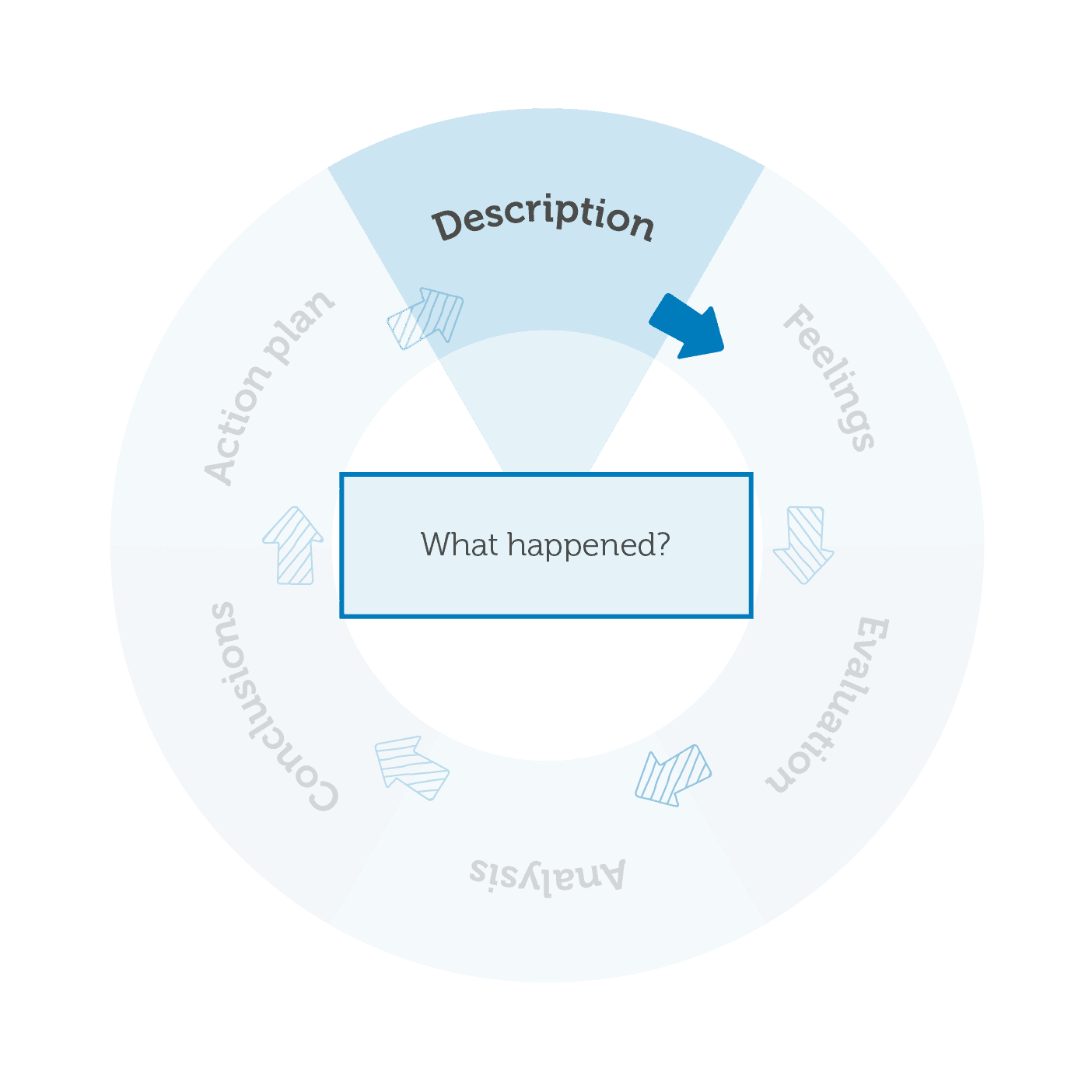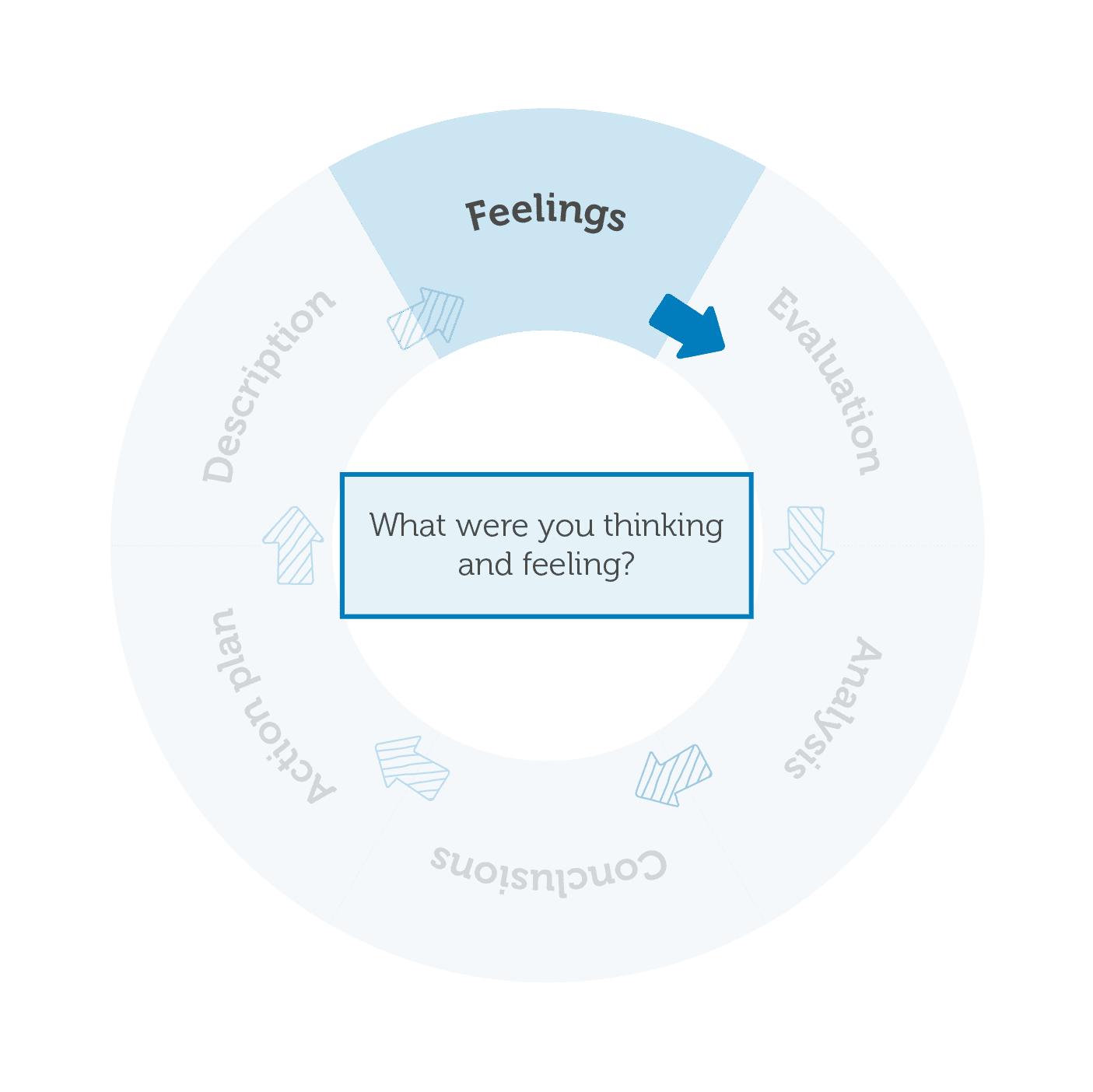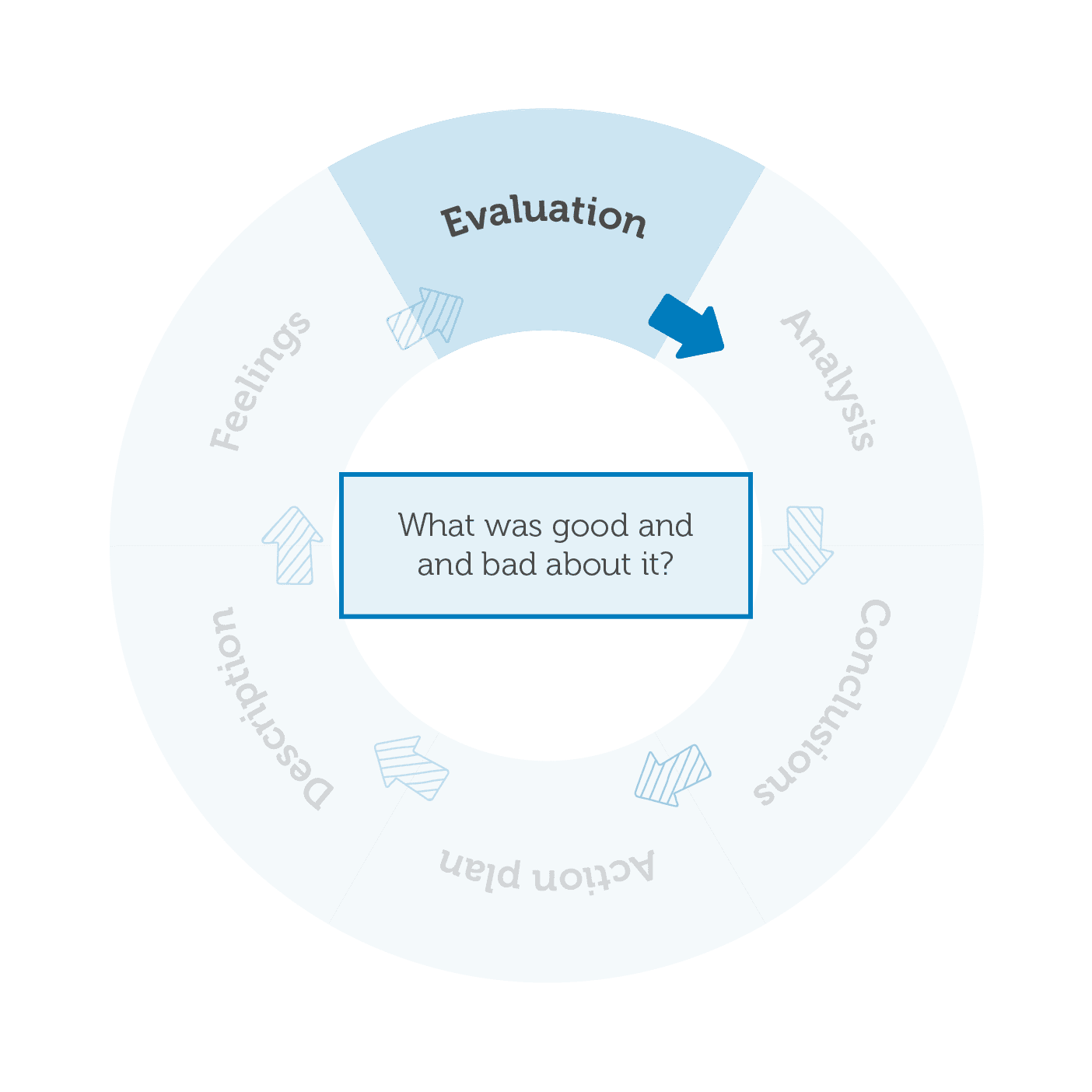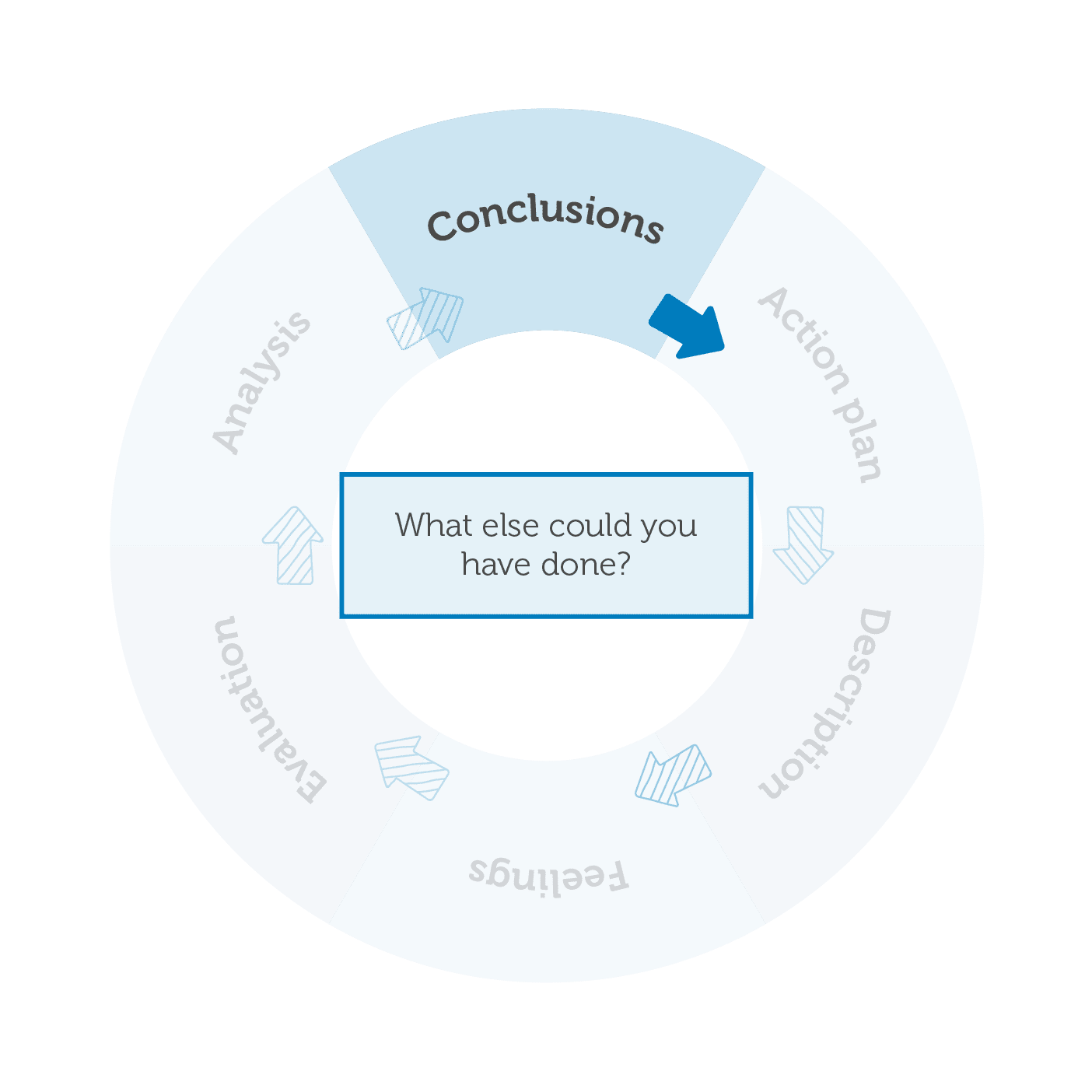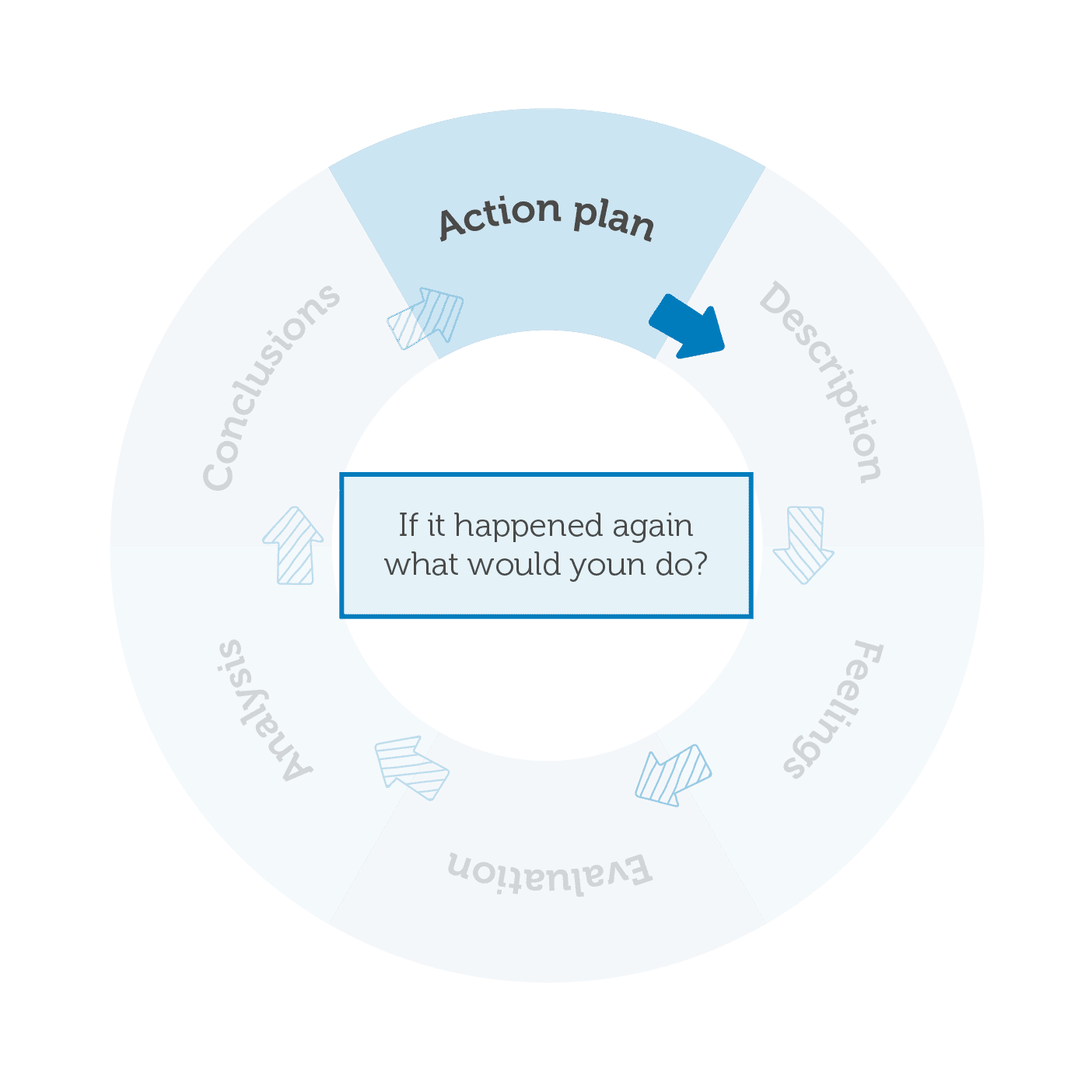
Practise thinking and writing reflectively
Introduction
We do not learn from experience.
We learn from reflecting on experience.
John Dewey
In this final section we’ll introduce you to reflection.
Reflection is a critical skill in most professional roles, including across social services and healthcare. It provides a way of giving meaning to experience.
As you work through this final section, try to remember everything you have learned so far in these resources including new knowledge you’ve gained, values you’ve identified, skills you’ve practised and plans you’re beginning to make for your future. This will be helpful when it is time to try out some reflective thinking and writing yourself.
1. What is reflection?

A typical definition of reflection is that it is what happens when something (like an image, light, heat or sound) is thrown back to where it came from, like when a person’s reflection in a mirror. In the workplace and in education, the word is also used to describe deep and serious thought. It captures the quality of thoughts (like ideas or concerns) being ‘thrown back’ to the person for further consideration and analysis.
Reflective practice is a way of working in which you take time to actively think about your values, knowledge and skills and how you can combine them to make sense of what is happening and figure out how to provide the best care and support. It encourages you to evaluate what is going well and how to make things better. It can involve looking back on what happened as well as looking ahead to the future.
At a personal level, reflection can help you identify gaps in your knowledge which you can then improve by taking part in further learning. This means it is a brilliant tool for helping you plan and progress in your career.
Reflective accounts
Qualifications that you can gain in social services all encourage the use of reflection, it really is that important! Reflection is also necessary when applying for SSSC Open Badges and it can help you create your learning logs in the MyLearning app.
In the workplace, social service workers can gain credit towards their qualifications by completing ‘reflective accounts’. These are pieces of writing in which someone describes real experiences and analyses them using their knowledge, skills and values. They can also be captured in other formats like audio recordings. Those who complete Scottish Vocational Qualifications (SVQs) at work can also gain credit from ‘observations’ in which they show assessors how they use knowledge, skills and values in practice when providing care and support.
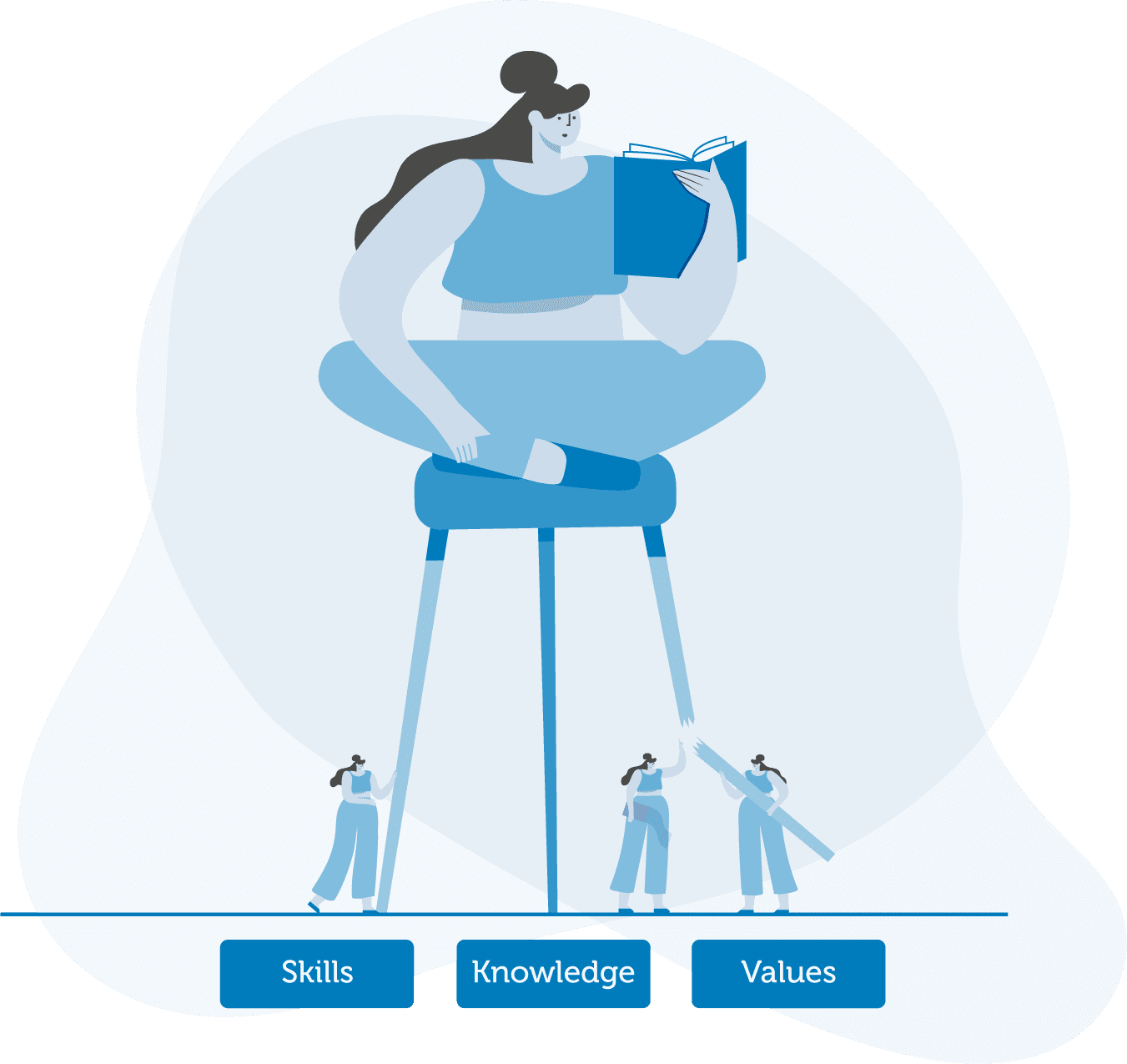
2. How to write a reflective account?
There’s no single method for reflective account writing which everyone must use. In fact, writing reflectively is a chance to be creative and expressive, and show your own individual personality.
However, reflective writing is a skill which can be challenging if you have not done it before. You might not know what is expected of you, or how to start. The reason for writing a reflective account (for example as part of an SVQ, a degree, or after a training event) might also influence what is expected and you will need to pay attention to instructions at the time from your assessor or tutor.
To help you practise reflective writing we have given you two methods in this topic to learn from. The first method is the reflective cycle which we have described in a series of images with captions. The second method is described in a video and is based around the word EFFECT.
The two methods contain many similarities. Once you have explored them, choose your favourite and move on to the reflective account activity to try it for yourself.
First method: the reflective cycle
A cycle is a good tool to use because it shows that reflective practice is continuous and doesn’t necessarily have a start and end point. Experiences can be ‘thrown back’ at any time to allow you to learn more from it, and if you return to your reflections you can choose which part of the cycle to start on. As you have new experiences (and develop new knowledge) you might also think about and describe the same experiences in a different way.
Click through the cycle below to reveal stages you can take when thinking or writing reflectively about an event.
Second method: EFFECT video
Play the video below to learn about the EFFECT method. You may like to use the six categories as a checklist to guide your reflective writing. These categories represent similar information to the stages in the reflective cycle.
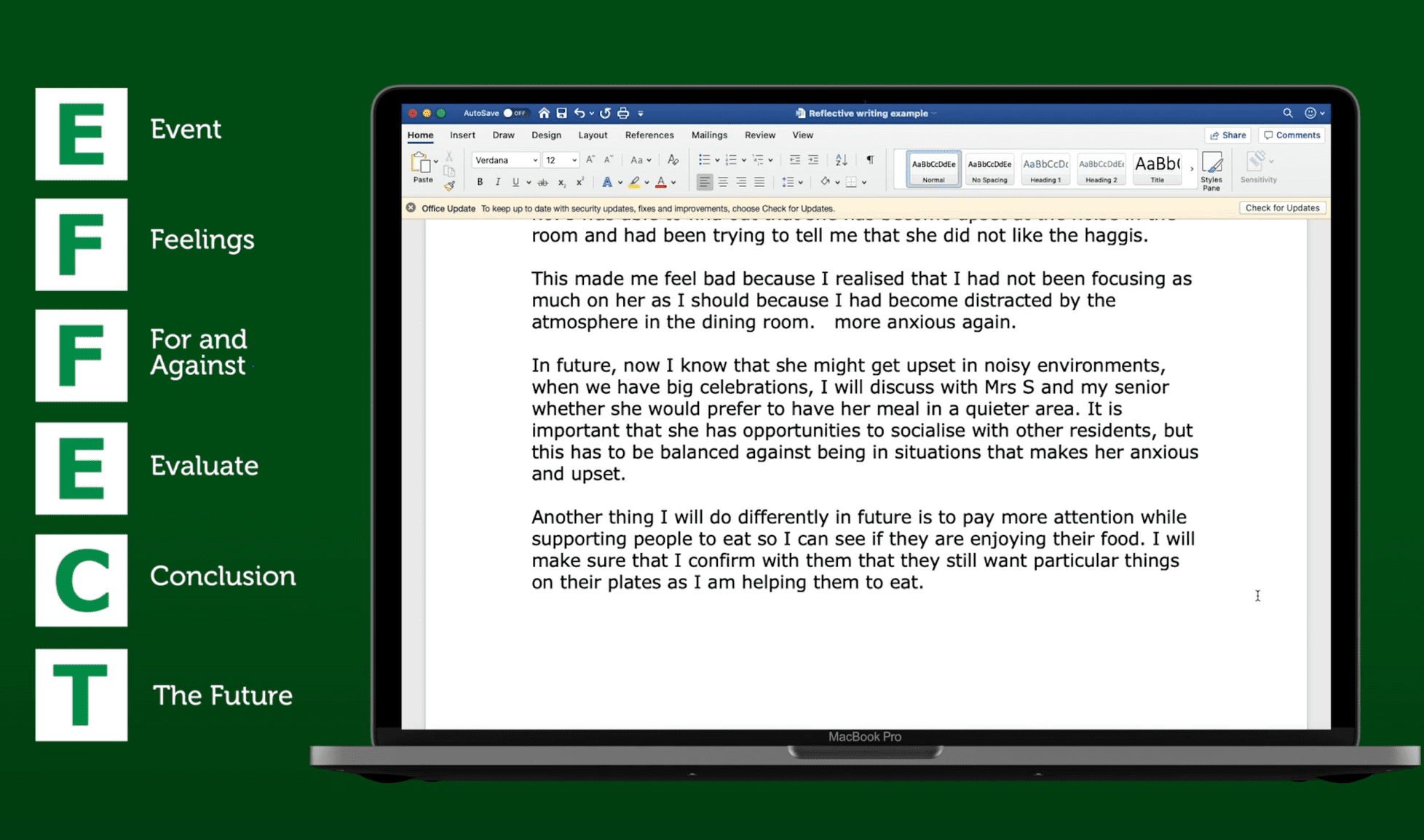
Note: Video link not found in the document – this is a placeholder
Activity: practise thinking and writing reflectively
For this activity you should follow either the reflective cycle or the EFFECT method.
Think about a real situation from the past in which you helped another person with a task. It can be any kind of example you like, big or small. It could be helping someone (including a family member) to go shopping or to a health appointment. It could also be dealing with a happy or difficult situation at home, or in a previous job.
We suggest you write at least 200 words. This is about two sentences for each category (whether you’re using the reflective cycle or the EFFECT video).
We recommend you use the MyLearning app to record your reflective account. You can type into the app, or you can write it on paper and take a picture of it before attaching it to a learning log in the app. The MyLearning app also allows you to create audio recordings if you would prefer to dictate (speak) your reflective account.
If you are learning in a group you might like to practise out loud. If you are using a personal example, make sure you are comfortable sharing it (if you’d prefer to keep it private you can write it down instead).
End of section

Thank you for completing our professional values resource!
You can find three other resources on the home page or you can scroll down to find links to some career pathways.







